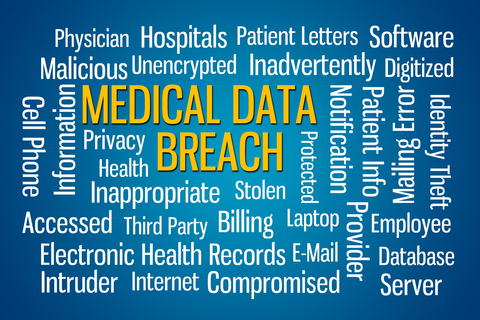Medical Theft is Closer Than You Think
By Andy Tiwari

Medical identity theft is a billion-dollar “industry” that hits a lot closer to home than you think.
It generally involves fraudulent use of personal information (name, social security number, insurance information) for the purposes of obtaining medical services or devices, insurance reimbursements, or to get prescriptions illegally. But the motivation and method of exploitation of your information varies depending on the criminal, making it hard to concisely define.
In some cases, the perpetrator racks up large billing leaving the victim responsible for payment. In other cases, international criminals used patient data to obtain fraudulent reimbursements through fake medical offices. Overall, it’s increasingly common: a Kaiser Permanente study found there were nearly 1,000 large health data breaches between 2010 and 2013 that affected more than 29 million records, including those of many Texans. Medical data is now fetching more on the criminal market than your credit card, but a surprising number of thefts were related to just obtaining medical care.
Doctor’s offices have become wise to the issue and request identification for new patients as part of electronic medical records. But in other cases, it’s easy to see how it might happen: when last did your doctor ask for proof that your child was yours or that you- the parent- were who you claimed to be? On a more basic level, if you go to the hospital and have insurance information, but don’t have your ID, the hospital is more focused on providing you with care – that’s their mission. If a confident criminal has your insurance information but not your ID, they might get past a busy gatekeeper and get free medical care. For many prescriptions, a pharmacy won’t ask for ID or the criminal can try to get the prescription elsewhere – it’s a low risk enterprise. This highlights perhaps the biggest potential problem for the average victim: false information in your medical file.
Removal of inaccurate information is the preferable outcome because you don’t want permanent records inaccurately showing your child had broken bones or that you needed psychiatric care. But this will be up to the healthcare provider: there is no requirement that incorrect information in your medical file be deleted. Instead, HIPAA law allows for false information to be “marked” inaccurate because the industry fears inadvertently losing data that could be critical for care.
Medical providers are required to notify patients about known breaches under the Health Information Technology for Economic and Clinical Health Act. But the crime can go unnoticed for some time unless you closely watch the explanation of benefits you receive from your health insurer or Medicare/Medicaid.
If you notice errors, call your provider immediately and verify it’s not just an error. If you believe it might be theft, the process is similar to any other form of identity theft – you will need to file a police report and contact the social security administration. If it’s a federal benefit, such as Medicare or Medicaid, you need to contact that office to alert them as well.
If private insurance information is stolen, contact the Texas Department of Insurance and your insurer requesting that they “red flag” your account. Once your insurer does so, they should first confirm whether future services are in fact being obtained by you. Most insurers will not re-number a policy, though policy numbers are used in theft. In a worst case scenario, cancel the policy and get a new one. But note that doing so may mean higher premiums and loss of grandfathered benefits.
To prevent medical fraud, carefully monitor your records and safeguard your data. Of course, prevention is easier said than done if your insurance company or the government gets hacked. Routinely inspect documents that list your medical services or prescriptions and double check dates closely. This is one of the easiest ways to spot possible theft. Healthcare providers should implement identification verification procedures and train staff on spotting and avoiding potential theft.
If you initiate the process of correcting your medical records, you may need some legal muscle to help argue for removal instead of “marked” files. An attorney may also need help you fend off debt collectors until the issue is resolved.
If you need legal advice, schedule a meeting with Tiwari + Bell PLLC through our website or by calling (210) 417-4167.
